Diaspora
LETTER FROM PERTH, WHERE ABOUT 13.000 SERBS LIVE
A Drop of Melancholy in Every Joy
In this metropolis in the southwest of Australia, the city resembling a futuristic image of urban paradise, Serbs have been respectful citizens for five generations, reputable doctors, businessmen, artists, sportsmen. People watch matches of White Eagles, they have Karadjordje’s Cup, they listen to Radio Serbia and gather in the churches of St. Sava and Holy Trinity. However, they say that the soul of every immigrant is eternally divided into ”there” and ”here”. Each of them left only to return one day, but ”life is short and the journey long”
By: Mirjana Dragović
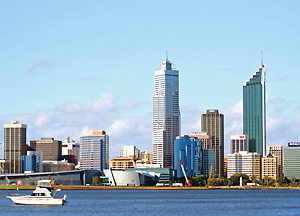 The fifth generation of Serbian emigrants is not growing up in Perth, the capital of Western Australia, at the furthest southwest of the fifth continent. You can hear Serbian language, from the eastern to the western accent, in the streets, in public transportation, in shops, at the beaches... Unofficial data states that there are about thirteen thousand Serbs in Perth, with the constant tendency of growth, however not so intensively after the end of the crisis in the Balkans in the 1990s. They mostly come with an employment visa, by system of points, which can later provide a residential visa and Australian citizenship. The fifth generation of Serbian emigrants is not growing up in Perth, the capital of Western Australia, at the furthest southwest of the fifth continent. You can hear Serbian language, from the eastern to the western accent, in the streets, in public transportation, in shops, at the beaches... Unofficial data states that there are about thirteen thousand Serbs in Perth, with the constant tendency of growth, however not so intensively after the end of the crisis in the Balkans in the 1990s. They mostly come with an employment visa, by system of points, which can later provide a residential visa and Australian citizenship.
The first and most often picture of Perth – a business center with a few skyscrapers made of glass and concrete, common for modern metropolises – can create a completely wrong impression. Perth actually more resembles a huge village. Peaceful residential blocks with family houses follow after the city’s business area. When you pass the wide streets by lawns and flower alleys, sports courts, avenues, houses with gardens, gates, pergolas, smiling neighbors, by resorts with small lakes and built-in grills (you just bring your food and turn them on), with free concerts, when you meet rare passersby, or when you realize that everything is desolated after dark, Perth may seem to you like a utopian vision of life, or some sociological futuristic experiment. The image of urban paradise – a perfect, isolated place for living. Without graffiti, without a single stray dog, without garbage cans  and garbage in the streets (garbage is taken out only on certain days), without a single shabby suburb. Between city zones are natural reservations. and garbage in the streets (garbage is taken out only on certain days), without a single shabby suburb. Between city zones are natural reservations.
The kaleidoscope of streets can be ruined only by areas with enormous tin boxes next to industrial or commercial objects, a crossroad of traffic routes, or a construction site.
If one would want to invent a place for living, his house, neighborhood, street, he would hardly be able to invent something more imaginative or more beautiful. The only objection may be (according to our standards) the unoriginal life by the river and ocean.
However, this also often seems monotonous, lifeless. You catch yourself longing for old stone pavements and facades, the Neo-Baroque plastics, secession and other European styles, even the residential blocks from the soc-realism époque, groups of kids or young people in streets and lobbies with guitars. Either it is all part of the past everywhere, or the global village is succeeding in making all youths equal and uniform.
Even here, in Perth as it is, crimes is evidently increasing.
THREE WAVES OF IMMIGRANTS
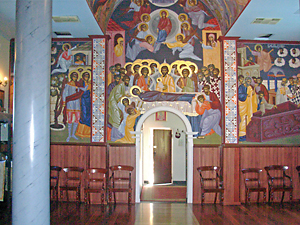 Perth is young, one cannot feel the spirit of ancientness, the safety and pride given by the tradition of centuries-long existence, but it is still somehow beyond time. Sometimes it rudely makes a whole of a modern several stories building and an old stone church frightfully narrowed in the building’s foot. Perth is young, one cannot feel the spirit of ancientness, the safety and pride given by the tradition of centuries-long existence, but it is still somehow beyond time. Sometimes it rudely makes a whole of a modern several stories building and an old stone church frightfully narrowed in the building’s foot.
The city was founded in the 1830s by free immigrants, a bit more to the north from the older port city of Fremantle, on the shore of the Indian Ocean. After the referendum in 1901, Western Australia became part of the Australian Federation.
The climate in this part of Western Australia is very favorable and resembles the Mediterranean. If you meet an English immigrant or someone from the northern countries which have not been parts of crisis areas, they will tell you that they live here because of the climate.
Besides the University of Western Australia (UWA) founded in 1911, there are three more state universities in Perth and a private art academy. Many Serbs who live here teach at these universities. Perth does not have a particularly long tradition either in science or socio-cultural upgrade, however talents of any kind do not remain unnoticed and are given a chance for improvement, in Perth or other places. Many of our young talented people found this city as a starting point. There are many names which deserve special attention and presentation.
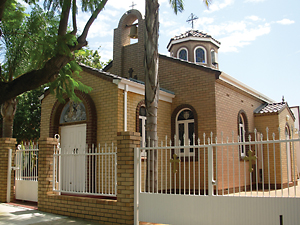 The Perth Concert Hall with the symphonic orchestra, the Institute of Art Innovations, the New Year tennis Hopman Cup and other institutions all include Serbian people. The Perth Concert Hall with the symphonic orchestra, the Institute of Art Innovations, the New Year tennis Hopman Cup and other institutions all include Serbian people.
The first generations of Serbian immigrants came to these lands between the XIX and XX century and between the two world wars, when many Serbs and other nations of former Yugoslavia set off across the oceans. The second and the most significant wave of immigrants was after World War II, and most of them were prisoners of war and people who survived concentration camps. Although many of them were educated, they came here as physical workforce, which Australia was in need of at the time in the sugar cane fields, in mines, for building dams, railway tracks... The third wave of immigrants was in the 1970s and 1980s, only for economical reasons. And finally, a big part of the Serbian population immigrated to Australia, including Perth, during the war and economic crisis in former Yugoslavia in the 1990s. The immigrants were given a permanent visa; they were provided accommodation and social security. Since the immigrants were educated and qualified, it was relatively easy for them to find jobs and provide themselves and their families a good standard.
MOST DIFFICULT FOR THE FIRST
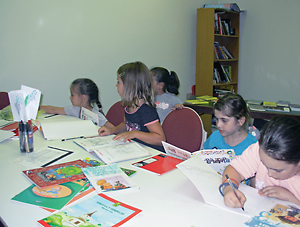 Every generation of immigrants considers their time the most difficult, but it can be said that it was certainly most difficult for the first generations of immigrant families, in any time. The joyful face of Petar Radanović, one of the oldest Serbs in Perth, whose father came from Herceg Novi in 1901, expresses neither his age nor a hard life. However, stories about the life of the first immigrants in Kalgoorlie, a city east of Perth with a famous gold mine, tell us that it wasn’t easy for them at all. Every generation of immigrants considers their time the most difficult, but it can be said that it was certainly most difficult for the first generations of immigrant families, in any time. The joyful face of Petar Radanović, one of the oldest Serbs in Perth, whose father came from Herceg Novi in 1901, expresses neither his age nor a hard life. However, stories about the life of the first immigrants in Kalgoorlie, a city east of Perth with a famous gold mine, tell us that it wasn’t easy for them at all.
Numerous Serbian families settled in Kalgoorlie at the time, including the Pavlović, Danilović, Lučić, Malošević, Mrečević, Vidaković, Šiljegović, Vabić, Marić, Ćetković, Božović, Kosovac families... Although they were good workers, they, the Italians and Greeks were constantly underestimated and provoked by the locals. Petar remembers well the conflict in 1934, when an Italian accidently killed an Australian. In the following days, the locals had their revenge by burning and robbing the immigrants’ houses, shops, restaurants, estates, among them also 80 Serbian. The immigrants did not receive any special support, except for supporting each other, and the times were hard.
Education was almost impossible, because they had to work constantly. They learnt about the history of the Balkan lands with the gusle players in the immigrants’ homes, the only places they gathered in at the time. Petar has preserved up to the very day the first gusle made in this part of the world from a tin dish, which really sounds as if made of real maple tree.
Serbs participated in both world wars either as Australian soldiers or volunteers. One squad of volunteers, mostly from Dalmatia, fought at the Thessalonica front. Nikola Marić, member of the Australian army in World War I, received a medal and a piece of land for his merits. He was the first consul of the Kingdom of Yugoslavia in Freemantle.
Our people in Perth were also very active during the Serbian sufferings in the 1990s. They collected and sent aid, they offered housing and medical treatment, and actively stood up to defend the Serbian name here.
DEFENDING THE NAME AND CHEEK
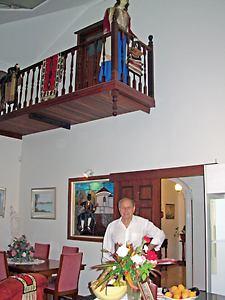 Besides the Yugoslav club ”Jugal”, which also includes Serbs, there are several other communities in Perth. The Serbian ”Western Australia” center in Maddington, with a very representative building, has recently celebrated its twelfth anniversary. It includes sports and folklore sections, the cultural and sports club ”Srbija” founded in 1978, the cultural and sports community ”Rockingham” in the suburb with a same name with a folklore and basketball section for the young, the cultural and sports community ”Krajina”. Besides the Yugoslav club ”Jugal”, which also includes Serbs, there are several other communities in Perth. The Serbian ”Western Australia” center in Maddington, with a very representative building, has recently celebrated its twelfth anniversary. It includes sports and folklore sections, the cultural and sports club ”Srbija” founded in 1978, the cultural and sports community ”Rockingham” in the suburb with a same name with a folklore and basketball section for the young, the cultural and sports community ”Krajina”.
”Srbija” community includes the football club ”Beli orlovi” (”White Eagles”), the host of the Karadjordje Cup where teams from local communities’ throughout Australia compete. Two years ago, Princess Jelisaveta Karadjordjević was a special guest. On the other side of the city, the folklore group ”Kolo”, with Olivera Zimonjić as manager and choreographer, is a constant member of all important Serbian events.
Serbs also gather in two church and school communities, in the Church of St. Sava and Church of Holy Trinity (built with the donations of citizens in the late 1950s), as well as the missionary community-parish St. Vasilije of Ostrog. The church and school communities also have libraries and Serbian language schools, all carrying the name of Vuk Stefanović Karadžić.
Radio ”Serbia” broadcasts news, while messages, advertisements and Serbian music can be heard via the ”Aleksa Šantić” Information Center. Special St. Vid’s day events are organized whenever there is an opportunity. The local Serbian chronicles state that the famous Serbo-Australian actress Bojana Novaković took part in this event in 2005.
Every year, the team of the Serbian Film Festival, founded and prepared in Sidney, enables people to see both old and new Serbian movies.
 Each three months, Ilija Ilić, reporter of radio Serbia in his free time, organizes literature evenings where local writers and other artists present their works. Each three months, Ilija Ilić, reporter of radio Serbia in his free time, organizes literature evenings where local writers and other artists present their works.
Despite the black propaganda stereotypes and expensive negative spinning of the public in the recent past, the Serbs are respected people in this part of the world, reputable doctors, businessmen, artists, sportsmen. In this multiethnic and multicultural environment, they attract attention by their versatility, smartness, unselfishness, openheartedness... Unfortunately, Perth does not have a Serbian consulate which would bring the homeland closer and enable better contacts and organization.
Perhaps this distance makes the division of the soul of each immigrant into ”there” and ”here” even more profound. It is not easy to join something so different and separated by such a distance. And anything anyone here achieves, sees, experiences, learns, does not achieve its full culmination because it cannot be easily transferred, shared with friends, family, neighbors... who remained far away. As if everyone here has the melancholy and nostalgia a bit more expressed than the immigrants in other parts of the world. All conversations begin and end with Serbia. Everyone left one’s homeland only to return one day. However, life is too short and the journey too long.
***
The Whole World in One Place
During the previous three decades, the population of Perth doubled, so the city now has more than 1.600.000 inhabitants. This is the whole world in one place; one can meet all nations of the world. Besides the constant inflow of people from Asia, the immigrations brought people from South Africa, Zimbabwe, Brazil, Italy, Greece, Slavic countries and, of course, all parts of former Yugoslavia.
***
”Tesla Forum”
The ”Tesla Forum” society from Perth was founded six years ago by Branislav Grbović, engineer and respectable businessman, with the support of competent institutions of Serbia, Montenegro and Australia. Promoting the work of the ingenious Serbian scientist it was named after, the Forum gathers people and organizations of mainly technical vocations, advocates the idea to have Tesla’s birthday, July 10, proclaimed as International Day of Tesla, grants Tesla awards and medals (designed by Jovan Radanović, sculptor) to the best students and scientists in the area Nikola Tesla studied and explored.
|
